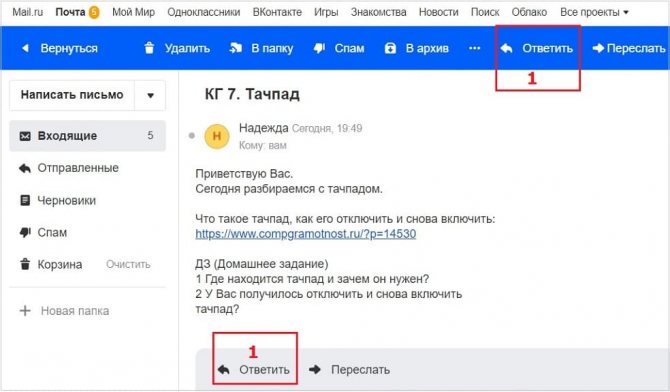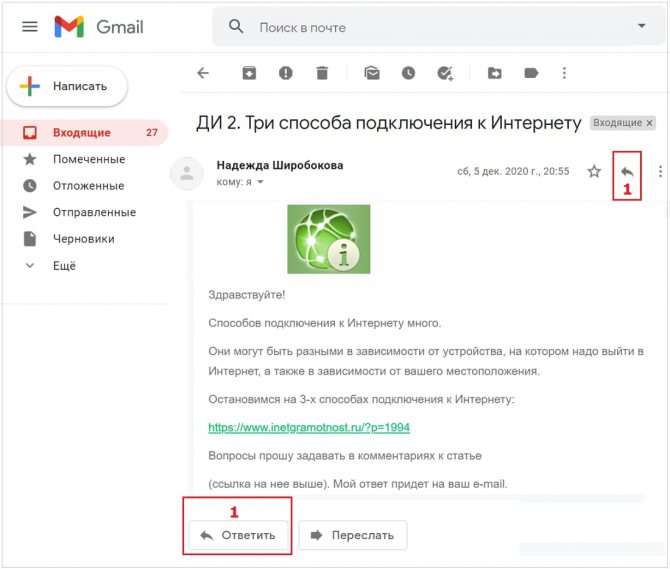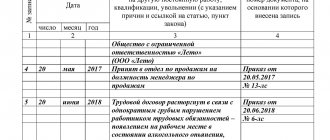Is it mandatory to respond to a request for information?
The company receives various correspondence - commercial offers, invitations, congratulations, advertising and information materials. It is not necessary to answer all of them. Government agencies also send a lot of papers. When they get into the organization, they are sorted, and the especially important ones are sent to management. Some are needed for familiarization, while others require a competent answer.
Be sure to respond to documents that contain:
- requests;
- claims;
- requests;
- orders;
- commercial offers;
- invitations.
Most often in practice, business correspondence occurs in the form of a request. In such official correspondence, current and potential partners ask for information about goods, services, pricing policy, delivery times, and more. Often, official requests are made by government agencies demanding the provision of significant information or documents.
Unlike ordinary letters of request, in requests the sender substantiates the requirement for information. For example, refers to a legislative act that allows you to request important business papers, information about the organization, employees, etc.
According to the law, various government agencies have the right to demand them:
- judicial authorities when the case is being considered;
- the prosecutor's office, when investigating criminal cases, conducts checks based on statements from citizens or general supervision;
- lawyers when collecting information to protect their client;
- tax office during verification of compliance with legislative norms;
- Ministry of Defense when carrying out measures to improve the country's defense capability.
Organizations do not have the right to ignore such requirements. When starting business correspondence, legal entities must know how to respond to a letter requesting information - clearly, in detail, competently and specifically describe the essence of the issue. But you should not respond to any request indiscriminately. It is important to check that it is drafted correctly and with a clear rationale and only then respond. For example, courts are required to indicate in which case the information is needed (write the number, date, tell the essence of the issue). The prosecutor's office reports why the prosecutor's inspection is being carried out (name and number of the document, application of a citizen or organization), etc.
IMPORTANT!
We must not forget that if you provided secret data on an unreasonable request, this is fraught with litigation.
If a citizen applies, then you are obliged to provide a written answer to his questions. This is provided for in paragraph 3 of Art. 5 Federal Law No. 59 “On the procedure for considering appeals from citizens of the Russian Federation.” Please remember that it is prohibited to disclose the information specified in the application without the consent of the citizen. But if the question is not within your competence and is forwarded to another body, this is not considered disclosure (clause 2 of article 6 of Federal Law No. 59).
If the application contains obscene language, insults and threats against authorized persons, then they have the right to leave it unanswered. If a citizen’s application does not contain a surname or address, then officials are not required to respond. If the surname is clear, but the essence of the issue is not visible, then within a week the citizen must be informed about this in writing (Clause 3 of Article 11 of Federal Law No. 59). If the letter contains questions to which the citizen has been answered many times, but he does not provide new arguments, management has the right to stop correspondence with him. And inform him about this in writing (clause 5 of article 11 of Federal Law No. 59).
ConsultantPlus experts examined issues of judicial practice on administrative liability for failure to comply with information disclosure requirements. Use these instructions for free.
What types of response letters exist and what are their features?
In practice, there are several types of responses to requests for information.
They are divided into two groups:
- A positive response with the provision of the requested data - the applicant is informed about the decision made and is provided with the information that he requested;
- Negative answer - the applicant is presented with a reasoned refusal with a detailed indication of the reasons for the decision.
The difference between these two categories of answers is their content. For example, with a positive decision, not only a complete answer to the question asked is given, but also all the information on the essence of the requested information is included as much as possible. As a result, having received such a response, the applicant should be completely satisfied with it without unnecessary additional questions.
The main feature, as well as the difference between these types of response letter to a request for information, lies in its content. So, when composing a positive letter, it is necessary to give the most complete and comprehensive answer to the question posed.
Ultimately, the applicant organization should have no questions regarding the substance of the information provided. When forming a negative response to a request, on the contrary, the emphasis is placed on the motivating part of it, since the requested information will not be provided for one reason or another.
If there is such a possibility, then in a negative decision, indicate to the applicant the addresses where he should contact to obtain the requested data.
Watch the video. In what form should documents be submitted upon request by the tax authorities?
When should I prepare a response?
It all depends on the specific correspondence. There are no clear deadlines for private organizations. Government agencies usually note either the date or the period within which information is required. When corresponding with counterparties, you should focus on the contract. It usually states how many days are allotted for a response. If no deadline is specified, look at the essence of the issue. If the correspondence is important, it is usually recommended to provide the information within 3-7 days at the latest.
As for citizens' appeals, specific deadlines have been established. His written appeal must be registered within 3 days. If these issues are not within the competence of the recipient, then no more than 7 days are given for forwarding to another body (Article 8 of Federal Law No. 59). The same amount is provided for sending a notification that the required information is indicated on official websites. 30 days are given to consider the appeal (Article 12 of the same law).
Management companies are required to provide contacts, the name of the organization and officials, information about tariffs, consumption standards, etc. the next day after the application. Within 3 working days, they are required to provide information about the readings of public meters, copies of reports of harm to the health of a citizen, violations of the quality of services provided, verification of violations, etc. (clause 34 of the Government of the Russian Federation of May 15, 2013 No. 416).
How to write a response to a claim so as not to pay a penalty?
The requirement to pay a penalty, in accordance with clause 2 of Art. 330 of the Civil Code, cannot come from a party to civil law relations if the second party is not responsible for non-fulfillment (improper fulfillment) of the terms of the contract. Among the circumstances - grounds for exemption from paying a penalty may be:
- guilty actions of the creditor;
- force majeure;
- actions or inactions of other persons for which the person is not responsible (for example, when the customer’s supplier, in accordance with the contract concluded with him, was supposed to supply the material necessary to begin work and did not do so).
Consequently, in order to avoid unjustified payment of a penalty, the response to the claim must include a reference to the norm of Art. 330 of the Civil Code, and also describes the circumstances that caused the failure to fulfill the obligation on time, releasing the parties from liability (failure to submit documents by the customer, failure to transfer the advance payment provided for in the contract, natural disasters, etc.).
A sample claim for penalties can be found here.
First step to reply to email
Every email has a Reply button. To find it, you should open the letter in your mailbox. The reply button is usually located in the upper right or left corner, and it is also duplicated at the end of the letter. It turns out that the received letter has two buttons for reply. It is enough to click once on any of them and then immediately write a response to the received letter.
Below is shown where to look for the “Reply” button using the example of three mailboxes: Yandex.Mail, Mail ru mail, and Google mail. In each mail, the reply button is highlighted with a red number 1.
If you open a letter in Yandex.Mail, you will see that one reply button is in the upper left corner, and the other is at the end of the letter. Both buttons are marked with a red number 1 in Fig. 1.
Rice. 1 (Click to enlarge). “Reply” buttons in Yandex.Mail. To answer, just press any button once.
Mailru mail in an open letter with two “Reply” buttons is shown below in Fig. 2:

Rice. 2 (Click to enlarge). In Mail.ru mail, to reply to a letter, click “Reply”.
Google Mail has “Reply” links in the upper right corner and at the end of an open letter (Fig. 3).

Rice. 3 (Click to enlarge). To reply to a letter in gmail.com, click on any “Reply” button: either in the upper right corner or at the end of the letter.
How to write a response letter?
A response letter is a business letter that is written in response to an official request or letter of request. Such a letter may contain either a positive or a negative decision (in this case it is a letter of refusal).
Since we are talking about business correspondence, there are a number of certain rules that must be followed when composing a letter:
- Promptness of response.
If you receive a letter of request or request, you must give an official response as quickly as possible. Delay can, firstly, show your organization in an unfavorable light and give your associates or clients a reason to consider you an unreliable partner. Secondly, a late response often leads to more serious consequences: disruption of deliveries, violation of contractual terms, etc.
- Correct design.
Any business letter must be drawn up on the organization’s letterhead (if any), contain all the required details of both parties and the output data of the document (full name of the organization, address, ORGN, INN, registration number, date of preparation, signature, indication of the executor, etc.) .
- Precision of wording.
The response letter is a compositionally and thematically dependent document in relation to the request, directly in response to which it is drawn up. That is, the answer must contain the same terms and wording, the main semantic aspects must coincide, and the consistency of presentation must be maintained. There must also be a link to the source document. However, do not forget about literacy of presentation. If suddenly the initiative document contains grammatical and punctuation errors, they should not be transferred to the text of the response.
As mentioned above, the written response may contain a positive or negative decision. In the first case, the response must repeat the contents of the request letter and include certain stable formulations. For example: “In response to your company’s request for ... we inform / send / provide information ... etc.” What follows is a statement of the information that was requested from you.
As for the negative answer, such a letter is structured as follows:
- content of the request (you can express gratitude for contacting your company);
- reasons for refusing to provide data or satisfy another request;
- statement of rejection of the proposal or refusal.
When refusing, you should use polite language so as not to offend the sender of the request. Possible options: “To our deep chagrin...”, “We are forced to inform you with regret”, “Unfortunately, our company is not able to take advantage of your offer...”.
In addition, it is recommended that if you refuse a request for any information, you provide the addressee with information about those organizations that are able to provide the required information, when and under what conditions they can do this (if you have the relevant data).
Sample document: Letter of response
If you have any questions about this topic, you can ask them in the comments.









